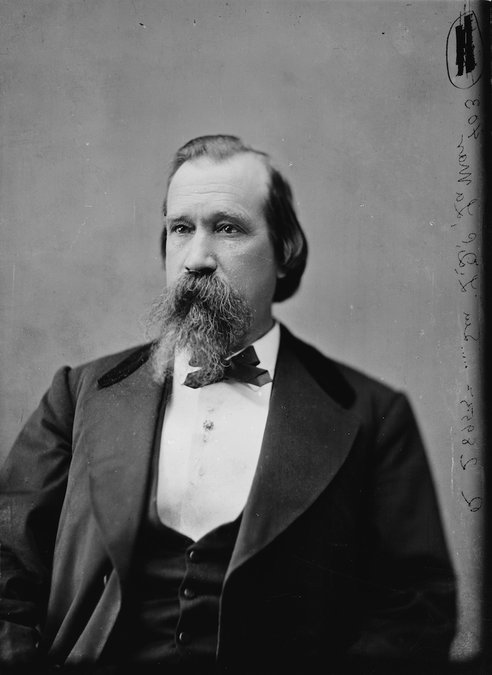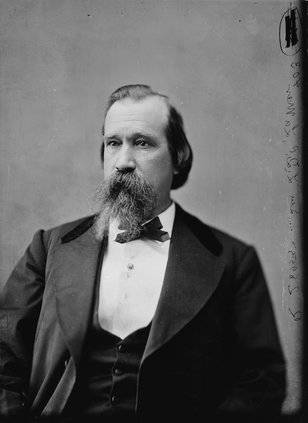OXFORD, Ga. — Emory’s president says he will remove the name of a 19th century Covington lawyer and U.S. Supreme Court justice from the university's law school professorships because of his support for slavery and Civil War secession.
President Gregory Fenves said April 21 in a letter to the university community he was removing Lucious Q.C. Lamar's name from two professorships at the Emory School of Law and an emeritus professorship.
Professorships in the Emory School of Law named after Lamar will become the Emory School of Law Distinguished Professors, a news release stated.
Lamar, a native of Eatonton, was an early graduate of Emory when its main campus was in Oxford. He later practiced law in Covington between 1847-1854 and represented Newton County in the Georgia Legislature in the 1850s.
He also was a defender of slavery and, after moving to Mississippi, bought a plantation and owned numerous slaves, according to the book, "The Supreme Court Justices: Illustrated Biographies, 1789–2012."
Lamar was elected to the U.S. House representing Mississippi but withdrew in 1860 and wrote Mississippi’s Articles of Secession from the Union.
He served as an officer for the Confederacy in its losing cause and, after having his civil rights restored after the war, served as a congressman and U.S. senator from Mississippi.
President Grover Cleveland named Lamar his Secretary of the Interior. He became the first Southerner appointed to the U.S. Supreme Court since the Civil War when the Senate confirmed him in 1888, where he served until his death in 1893.
Lamar County, Georgia, is named for him.
A historic marker on the Floyd Street side of the Covington Square states, "Here was located the office in which L.Q.C. Lamar, Statesman and Jurist, practiced law at two intervals from 1847 to 1854, thence moving to Macon and Mississippi.
"His family located at Covington after his father's death in 1834, and at nearby Oxford in 1838, where, in 1845, he graduated from Emory College.
"In 1853 Newton County elected Lamar to the State Legislature, starting his career which led to valuable service to the Confederacy, to the U.S. House and Senate, Secretaryship of the Interior, and to the U.S. Supreme Court."
Lamar's name had previously been removed as the name of Emory University's law school.
Fenves said his decision to remove Lamar's name from the professorships was based on recommendations from the University Committee on Naming Honors. He convened the committee in October 2020 to evaluate the legacies of individuals whose names "are honorifically recognized and elevated in spaces across Emory’s campuses."
“Since joining Emory in 2020, I’ve engaged in many discussions about the history of our university. Our knowledge of who we are as an institution comes from questioning and learning,” Fenves wrote in the letter. “Each generation brings new meaning to a narrative that is continually being evaluated and written.”
Led by Emory law professor Fred Smith Jr., the committee included faculty, staff, alumni and students. It gave its recommendations in a May 2021 report to Fenves who consulted with experts and considered "the perspectives of Emory students, faculty, staff, leadership and alumni to determine the university’s next steps."
Among several initial actions in response to the committee's recommendations, Fenves in October 2021 rededicated historic Language Hall on the Oxford campus as Johnson Hall for the late Newton County Superior Court Judge Horace Johnson Jr., an Emory alumnus.







